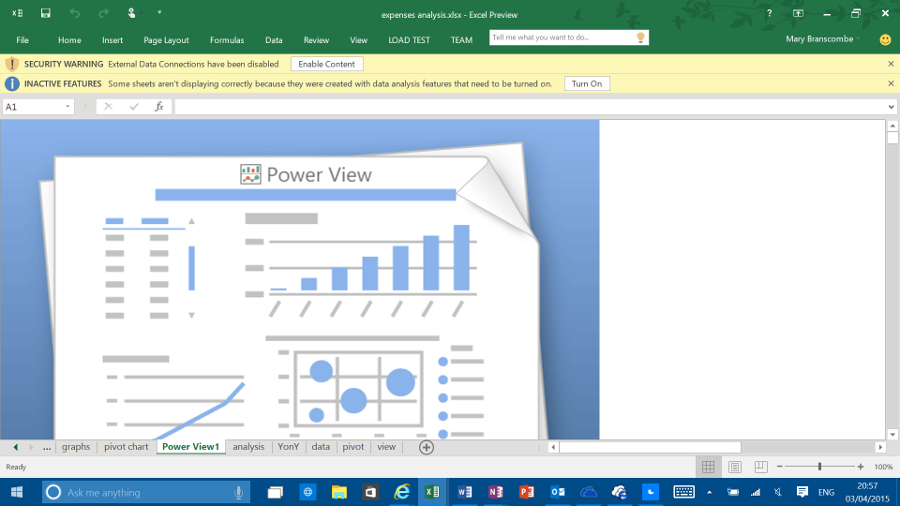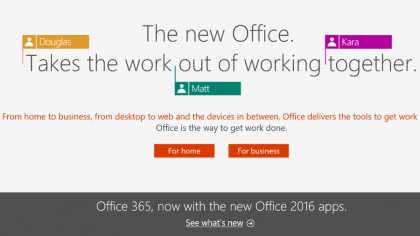Microsoft's plans for Office: More features, more mobile, more intelligent
What is Microsoft's next move with the suite?

25 years ago, Office was just Word, Excel and PowerPoint. Since then Microsoft has added more programs, thousands of new features, and first of all servers that you could run in your own office, then cloud services to take the load away from you.
Even before the first version of Office on Windows, Office 1.0 was available on the Mac and now you can get Office on iOS and Android, and in your browser. What's left for Microsoft to do with Office and what is the plan?
Reinventing productivity
According to Microsoft CFO Amy Hood (speaking this week at the Ultrabooks Global Technology conference), the plan is "continuing to expand the definition" of Office, by adding more features and services Microsoft can sell; "you put more in and you charge more," she said.
Don't expect Microsoft to change Office as dramatically as it did Windows. "We didn't say reinvent Office," she noted. "The ambition is not to reinvent Office. The ambition is to reinvent productivity and business processes."
That's much bigger than putting the Office servers into the Office 365 service – if that's all you think of when you say Office, Hood says that's because Microsoft made a mistake talking so much about that as "the narrowness of the vision".
Instead, when you think about Office, you should be thinking about Dynamics and Power BI and Intune, as well as Office 365 and Skype for Business and the familiar Office applications. "We're adding new things to the umbrella we call Office," she pointed out. "That's analytics, it's security... And the third pillar is voice." In fact, it's "anything that has a workflow to it".

Dual use
If it's something you do for work that a Microsoft tool can make you more productive at, on your own or as part of a team, Office wants to help with it – whether that's you looking at customer feedback, your team comparing sales figures, or your IT admin making sure you can't copy that feedback and sales information and send it to a competitor by managing the apps you get the information from through Office 365 and Intune. That's what Microsoft used to call 'dual use' which just means you'll use the same apps at work and in your personal life.
Are you a pro? Subscribe to our newsletter
Sign up to the TechRadar Pro newsletter to get all the top news, opinion, features and guidance your business needs to succeed!
That's another reason Office will stay on iPad and Android – and any other platforms that become popular. "If we're going to build great productivity software and we want our users to use our productivity software it will be important to ship it cross-plat[form]," Hood said, explaining why it would be "crazy" for Microsoft not to have a good relationship with Apple, and why the Office team had bought companies like Accompli, Wunderlist, Sunrise and now MileIQ, and why the founder of Accompli, Javier Soltero, is now the corporate vice president running all the Outlook products.
"Those are all terrific productivity experiences cross-plat, which is a common scenario for people that have an Android or an iPhone and a Windows PC. Having that experience be consistent, gorgeous and accrue [back to Office] is incredibly important to us."
- 1
- 2
Current page: Introduction and reinventing productivity
Next Page Mobile matters and machine learningMary (Twitter, Google+, website) started her career at Future Publishing, saw the AOL meltdown first hand the first time around when she ran the AOL UK computing channel, and she's been a freelance tech writer for over a decade. She's used every version of Windows and Office released, and every smartphone too, but she's still looking for the perfect tablet. Yes, she really does have USB earrings.